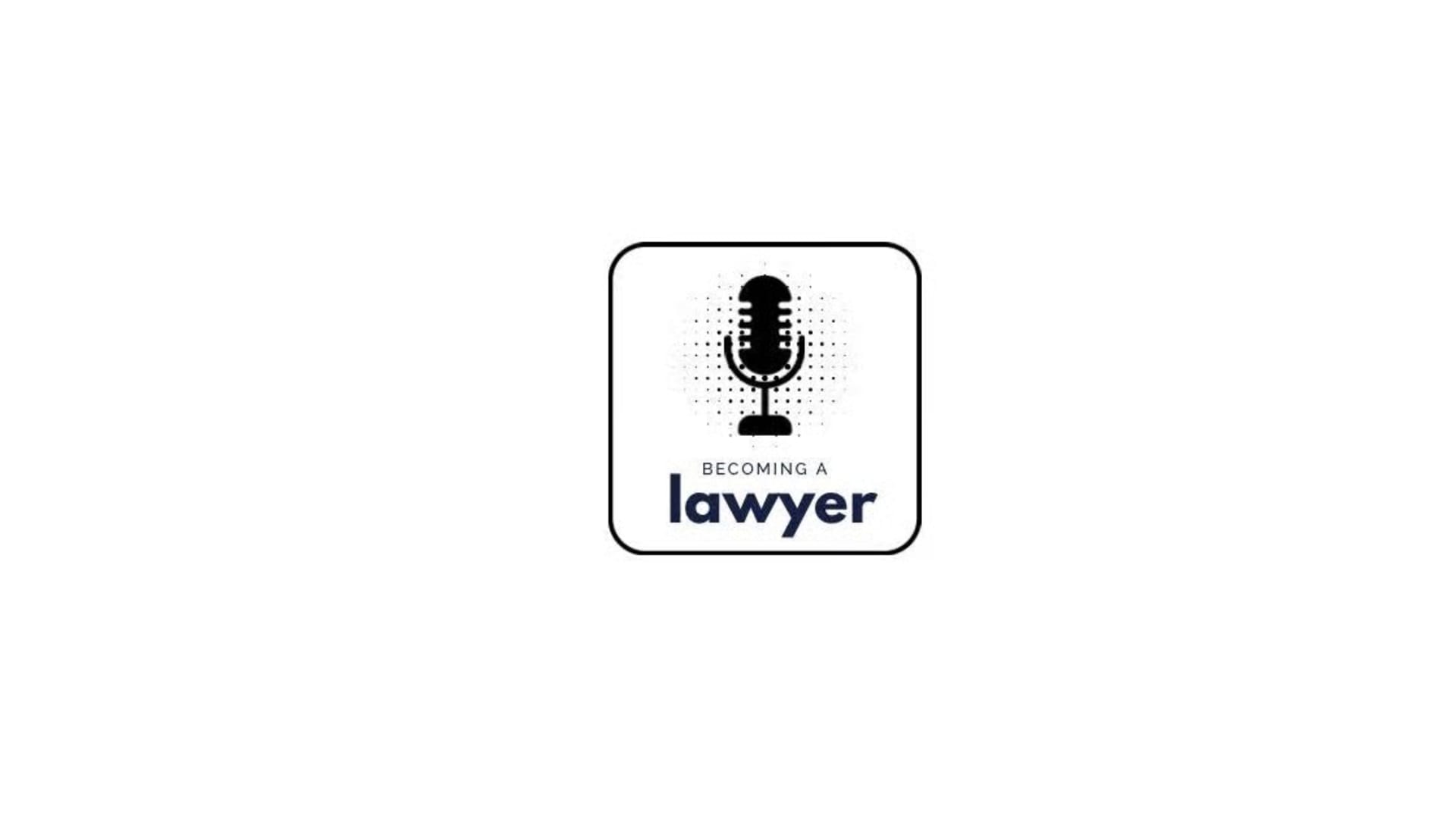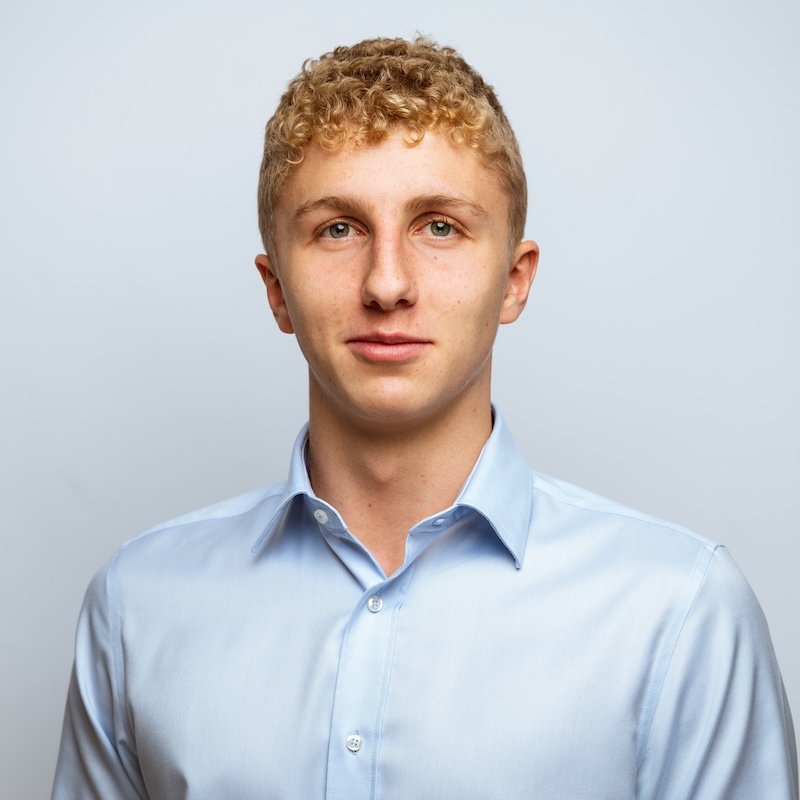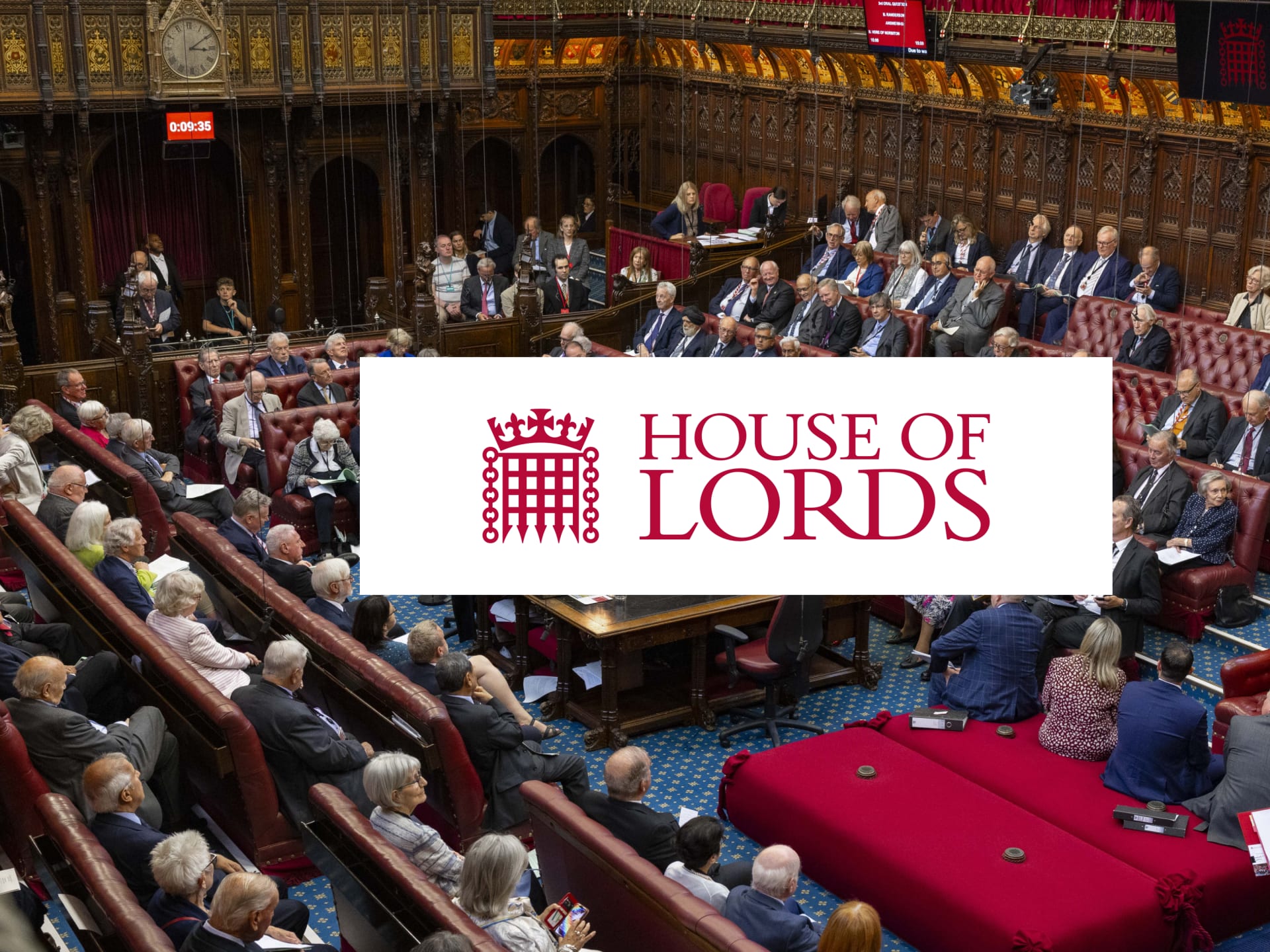Garfield AI CEO Shares Career Lessons and AI Optimism on Becoming a Lawyer Podcast
In an extensive conversation on the Becoming a Lawyer podcast, Philip Young traced his journey from trainee solicitor to legal tech pioneer, offering invaluable career advice on mentorship, partnership, and navigating law firm politics, while explaining why aspiring lawyers should be excited rather than fearful about AI's impact on the profession.

London, 28 May 2025 – In one of his most personal and advice-focused interviews, Philip Young, co-founder and CEO of Garfield AI, appeared on the Becoming a Lawyer podcast to share candid insights about his unconventional career path, from trainee solicitor at a shipping and insurance firm to building the world's first SRA-regulated AI law firm. The conversation offered invaluable guidance for aspiring lawyers navigating an AI-transformed profession, with Philip's central message: "Be excited by all this, not afraid."
Early Career Lessons: The Critical Importance of Mentorship
Philip opened up about his early struggles as a trainee solicitor at a shipping and insurance firm in the late 1990s, admitting he was "completely lost" in his first seat, knowing "nothing about shipping law." The turning point came in his second seat under Ben Larkin (now a senior partner at Jones Day), who "took me under his wing" and gave him real responsibility.
That's really important for young lawyers: to have a mentor at an early stage who looks after you and points you the right way.
Philip Young, Co-founder and CEO, Garfield AI
Finding the Right Mentor
His key advice for trainees: "Definitely find a mentor if you can. Somebody that you click with and somebody who is good at teaching and is willing to give you responsibility."
This early mentorship experience shaped Philip's entire career approach and his later commitment to building platforms that enhance rather than diminish opportunities for the next generation.
The Baker McKenzie Years: Quality and Professional Standards
Philip spent eight years at Baker McKenzie, including a year in Hong Kong, describing it as having "a good balance between seeking excellence but at the same time having a really good atmosphere." The firm instilled crucial lessons he carried throughout his career:
Excellence as Standard
Every piece of work should be "as good as though it's your last piece of work", a standard of excellence that doesn't vary based on client importance or matter size.
Professional Courtesy
Maintaining professional tone even when dealing with difficult opposing counsel, "no adjectives in correspondence even if you're dealing with a wally". This discipline in professional communication has served Philip throughout his career.
International Experience
His year in Hong Kong provided invaluable perspective on international legal practice and different legal cultures, experience that broadened his professional horizons.
Choosing a Practice Area: Authenticity Over Income
On selecting a practice area, Philip emphasized authenticity and long-term satisfaction over short-term financial considerations:
Be driven by something that you really are going to enjoy because you might be qualifying into an area and you might then be stuck in that area for the rest of your career.
Philip Young, Co-founder and CEO, Garfield AI
While acknowledging that salary matters, he stressed: "You've got to ultimately choose something that you know you're going to really enjoy because if you really enjoy something, you're going to excel at it."
This advice reflects hard-won wisdom. Choosing practice areas based on genuine interest leads to both better performance and more satisfying careers.
Co-founding CYK: The Boutique Firm Revolution
After eight years at Baker McKenzie, Philip made the leap to co-found CYK (Cooke, Young & Keidan), motivated by frustration with conflicts of interest at large firms.
I was turning away really good interesting cases because either there was an ethical conflict ... or there would be a commercial conflict because big law firms are quite careful about who they will act adversely to.
Philip Young, Co-founder and CEO, Garfield AI
Fortuitous Timing
The timing proved extraordinarily fortuitous. Founding just after Lehman Brothers collapsed meant "there was an awful lot of work against the big banks that no one wanted to touch other than the likes of us."
Philip candidly shared that some big firm opponents initially showed "institutional arrogance," sending "very arrogant pre-action responses," which he compared to "playing chess against somebody that gives you free pieces."
This experience taught valuable lessons about how institutional culture can blind organizations to threats and opportunities, lessons that inform Garfield's approach to legal innovation.
Thinking Like an Owner: The Path to Partnership
Philip offered crucial insights for lawyers aspiring to partnership, explaining the fundamental mindset shift required:
When you're an owner of a business, you have a very different perspective than when you're an employee.
Philip Young, Co-founder and CEO, Garfield AI
Partnership-Track Behaviours
Future partners are those who "see the business as being their long-term life and they want to grow the business and they want to help their colleagues and they don't make unreasonable demands."
Understanding Business Economics
You got to think of a business as a business and that's what it's there to do. It's there to serve its clients and generate money.
Philip Young, Co-founder and CEO, Garfield AI
When requesting budgets for marketing or development, lawyers should ask themselves: "If it was your money, would you spend it like that?" This owner's mindset distinguishes those who become successful partners from those who remain excellent employees.
Navigating Big Firm Politics
Philip candidly addressed office politics, particularly in larger firms and international offices, offering practical guidance:
Stay Informed
Keep your ear closely to the ground, listen to senior lawyers, and try to understand the terrain that you're navigating.
Philip Young, Co-founder and CEO, Garfield AI
Learn to Say No Politely
A lot of junior lawyers are very eager and they'll say 'I can do this, I can do that' and then they can overload themselves and that's no value to them and no value to anyone else.
Philip Young, Co-founder and CEO, Garfield AI
This practical wisdom helps junior lawyers avoid common pitfalls that can derail promising careers.
The Road to Garfield AI: An American Journey
After retiring from CYK partnership in 2022, Philip took his family on a three-month road trip across America from Boston to Seattle.
If ever you have the chance to do a road trip across America, you should do it. It's amazing. The scenery in America is just incredible.
Philip Young, Co-founder and CEO, Garfield AI
The ChatGPT Moment
During that autumn 2022 trip, ChatGPT 3.5 was released. As a self-described "giant nerd" who learned programming on 1980s computers like the BBC Micro and ZX Spectrum, Philip immediately recognized the potential: "This technology is going to change law dramatically."
When ChatGPT-4 arrived in April/May 2023, representing "another quantum jump upwards in performance," he thought, "we should build something."
This recognition of a technological inflection point combined with deep understanding of access to justice challenges from his litigation career sparked Garfield's creation.
Building Garfield: Finding the Right Co-Founder
Philip set out to find a technical co-founder, interviewing multiple candidates before finding Dan, who he describes as "far cleverer than me" with a Master's in quantum physics (and was pursuing a Ph.D. in photonics before committing full-time to Garfield).
We clicked, it works really well together. We've got very different skills that complement each other.
Philip Young, Co-founder and CEO, Garfield AI
Building the Technical Team
The team expanded to include "two front end wizards" (Pablo and Harry) and another backend rocket scientist developer (James). Philip praised their different working style: "I think they're a little bit less stressed than lawyers generally because I think lawyers tend to be quite stressed and high-strung. Probably that's because of the work we do and the pressures on us."
This cross-disciplinary team of lawyers and technologists working together exemplifies Philip's vision for how legal technology should be built.
The Name That Stuck: Why "Garfield"?
The name "Garfield" comes from Philip's 25-year friendship with Garfield Smith, a technology lawyer originally at Baker McKenzie who spent years saying "You should have been a technology lawyer, Philip."
When Philip started the AI venture, he had to concede: "I had to accept that I was now a technology lawyer and he'd won. So as a joke I said okay we're going to call it Garfield."
The team spent nearly a year trying to find a better name. "No one could think of a better name and in fact the more we thought about Garfield the more we liked Garfield because it even sounds like an English lawyer."
Philip jokes he's still waiting for "the cease and desist letter to come in from the Jim Davis estate" about the famous cartoon cat, a characteristically self-deprecating comment that illustrates his down-to-earth approach despite Garfield AI's achievements.
Design Philosophy: Learning from Apple
Philip's initial instinct was to create a "747 cockpit approach" with "buttons all over the place," but the team convinced him otherwise.
What we do nowadays, we take an Apple approach to things where there are no buttons unless we really have to have them and we make the product as intuitive as possible.
Philip Young, Co-founder and CEO, Garfield AI
Designing for Real People
The platform is designed for people like Philip's brother-in-law Andy: "We were building something that the Andys of this world can use and that means that we have to try and make it as easy to use as possible."
This user-centric design philosophy ensures Garfield remains accessible to small business owners without legal expertise, the very people who need it most.
A Platform for Law Firms, Not a Competitor
Contrary to positioning law firms as competitors, Philip deliberately designed Garfield as a platform they could use:
When you've been in the profession a long time you have a certain affection for the profession and you want the profession to thrive.
Philip Young, Co-founder and CEO, Garfield AI
For law firms wanting to scale small debt claims work, Garfield solves a critical problem: "You don't need necessarily to take on a lot more staff or have bigger offices. You can use the platform to help you scale effectively and maintain your margins."
This collaborative rather than competitive approach reflects Philip's roots in the profession and genuine desire to support it through technological transformation.
The Future: Optimism Over Fear
Philip expressed firm optimism about AI's impact on legal careers, directly addressing fears many junior lawyers harbour about technological displacement.
Eliminating the Drudgery
Rather than destroying jobs, he believes AI will eliminate "the frankly tedious grunt work that tends to be foisted upon junior lawyers" namely disclosure exercises, document review, due diligence, and time spent near photocopiers (or as he joked with his younger interviewer, explaining what a telex machine was).
Higher-Value Work for Juniors
Junior lawyers will be given better, higher, value tasks to do. More client relationship and client management, more strategic stuff, thinking about how to formulate a case, applying the law. The sort of jobs that you go into the law to do.
Philip Young, Co-founder and CEO, Garfield AI
More Litigation, Not Less
Philip predicts more litigation overall: "Making a lot more cases economic because a lot of the time cost will go out of a claim means there'll be a lot more claims pursued."
This has profound implications: more judges needed, more court funding required, and potentially a deterrent effect on organizations considering wrongdoing when they know litigation is more accessible.
Return to Fixed Fees
Philip also predicts a return to fixed-fee billing: "I think we might be going full circle back to a world where law firms are going to be able to quote with greater certainty fees for particular stages and maybe fees overall for a case."
This shift away from billable hours could fundamentally change law firm economics and client relationships.
The Most Underrated Skill: Humility
When asked about the most underrated skill for junior lawyers, Philip immediately responded: "Humility."
He admitted that as a junior lawyer, he could be "a little bit too full of myself," noting that "whatever you think you know, you don't know as much as a guy who's been doing it for 30 years."
Busting AI Myths
Philip wanted to debunk the notion "that it's going to take away everyone's jobs and we're all going to be redundant and Arnold Schwarzenegger like Terminator robots will destroy the planet."
As an optimist about human nature, he believes "dystopian sci-fi is unlikely to come true because I don't think humans are quite that silly."
Message to the Next Generation
His final message to junior lawyers was unequivocally optimistic:
Be excited by all this, not afraid. I think it's going to be good. There's going to be more learning to be done because you will have to adapt as technology rapidly progresses. But I don't think that's necessarily a bad thing. And when you're young, things are much easier than when you become a bit more like a dinosaur like me. So go with the flow, enjoy it, and keep learning.
Philip Young, Co-founder and CEO, Garfield AI
The Future in One Word
Asked to describe the future of legal practice in one word, Philip chose: "Exciting. It's a great time to be a lawyer. Really interesting. I think lots of really good developments are coming."
The Unexpected Media Storm
Philip's plan for a "quiet stealth launch" was upended when "a couple of weeks ago the FT discovered us and everything since then has been history."
Despite being thrust into the spotlight, appearing in the Financial Times and summoned to BBC Radio's Today programme, Philip remains characteristically modest: "I have the face for radio and so I only apologize for the fact that people have to look at photos of me."
Watch the Full Interview
The complete conversation is available on the Becoming a Lawyer podcast on YouTube at youtube.com/watch?v=tEh5udc5OsQ.
The episode provides interesting viewing for law students, trainee solicitors, and junior lawyers seeking guidance from someone who has successfully navigated multiple career transitions and is now building the future of legal services.
About Garfield AI Garfield AI is the world's first AI-driven law firm, approved by the Solicitors Regulation Authority. The platform helps businesses recover small debts while also providing a scalable solution for law firms serving small debt claims markets. Founded by senior City litigation lawyer Philip Young and quantum physicist Daniel Long, Garfield demonstrates how AI can enhance rather than replace legal careers while expanding access to justice. Visit garfield.law to learn more.
About the Author

Hugo Rawling
Legal Engineer
In other news


